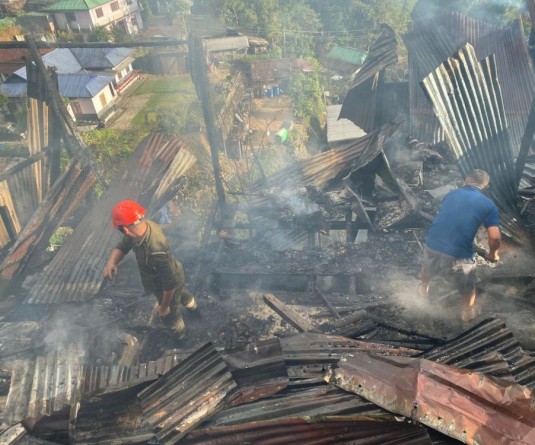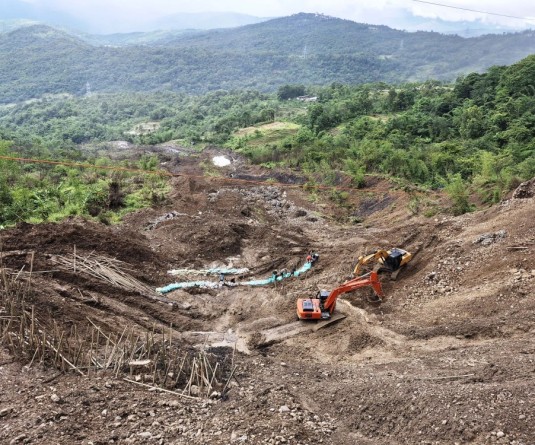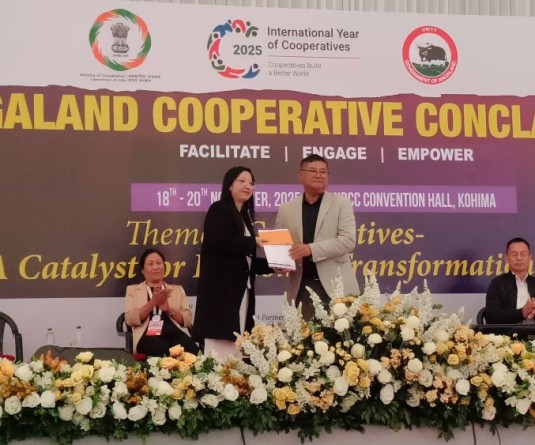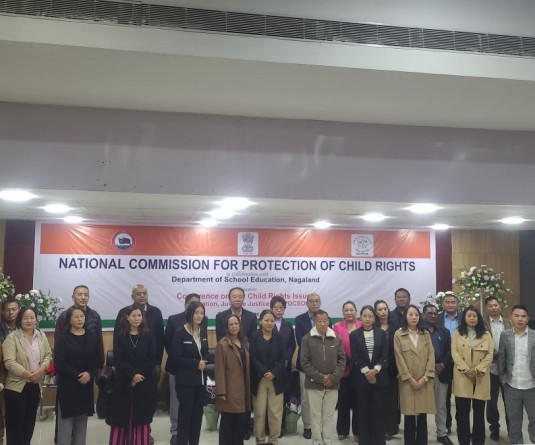
Morung Express News
Dimapur | June 23
Gender role and practices in the context of Naga traditions versus change and modernity was at the crux of a panel discussion held today in Dimapur.
The Naga Scholars Association and Heritage Publishing House organised the discussion at the DABA’s Elim Hall, where Naga personalities from differing schools of thought converged deliberating on the title theme ‘Gendered Practices and Emerging Discourses in Naga Society’.
“Intertwined between privileges (constitutional provision) and opportunities (education) gender is becoming a point of contestations and contradictions among different members and stakeholders in Naga society, where, ‘Gender’ in most cases is equated with women.
Understanding the idea that both men and women are an integral part of the society is lacking,” stated the concept note, that set the tone of the daylong discussion.
“To talk about men without women will be incomplete and vice versa and herein lies the important task for us to interrogate the gendered practices and roles sanctioned by the customs and traditions.”
The concept note underlined the need to strike a balance between customary rights and the Indian Constitution, as the rights guaranteed are pitted against each other. With that in context, the note emphasised a critical need to “examine the issues and negotiate within the materiality of culture for a just Naga society where the voices from the margins are heard and listened to…”
Further, 5 sub-themes were outlined for the panellists to engage on – customary laws and practices, gendered roles in Naga society, Article 371A and the current debate women reservation, adoption and inheritance and women’s participation in decision making. While the views differed, there was common refrain; that of a latent desire to include women in decision making.
Naga Hoho president, Chuba Ozukum held that a tendency to interpret (Article 371A) “as per convenience” has given rise to “clash of interest.” While justifying the perceived silence of the Naga Hoho at the height of the ULB and reservation crisis, Ozukum vouched for having a Municipal Act suitable to the prevailing customary practices.
NMA advisor, Rosemanry Dzüvichu looked at it from the perspective from what has happened in recent times. Terming as unjust the branding of women who took to court the issue of women’s participation in decision making, Dzüvichu questioned the justification behind the opposition to reservation in the ULBs while the state already has in place reservation at the Village Development Boards without much ado.
Stating that “the core issue is definitely the entry of women into decision making bodies,” she pointed to a misinterpretation of intent to have caused the reservation imbroglio.
Khesheli Chishi, former NMA president, said, notwithstanding the opposition of the men folk to the entry of women into decision making, the men have not failed to seek the help of women when it comes to dousing conflict situations. Calling for change in mindset, she said, “Give a chance to us… mothers and sisters.”
Kekhrie Yhome of the NPMHR called for a critical need for greater debate and deliberation. Yhome said that the NPMHR as a human rights organisation draws inspiration from internationally accepted principles.
According to him, the present Naga society with its traumatised past is caught between a wish for a futuristic vision and nostalgia of the past.
Toshi Wungtung, ENPO Advisor while stating, “We are not opposed to reservation per se,” added that there is the sceptre of apprehensive questioning if it is brought up. While stating that women’s reservation is an instrument of change, at the same time, he said that one must be mindful of the affect it would have on the sanctity of Article 371A. He further vouched for codification of customary laws if there has to be change.
Tsachola Sangtam, Advisor, Eastern Naga Women’s Organisation, while maintaining that Article 371A is for both men and women, said, “At the end of the day, we are going to be in the same home.”
P. Pius Lotha from CNTC maintained that there is no discrimination between men and women in Naga society. According to him, the CNTC recommended nomination instead of reservation in the ULBs.
The Ao Watsu Mungdang representative Temsujungla while stating that women’s participation is must, said that reservation will in no way hamper the traditional practices and called for change along with the times. As to inheritance of property, she said that the status quo be maintained with ancestral property while those acquired in the lifetime of the husband and wife be bequeathed to the couple’s biological children irrespective of sex.
She also rang a chord with Wungtung’s call for codifying customary law with Dr. Khekuga Muru of ACAUT, further calling for one Naga uniform code of customary oflaw.
Dzüvichu however questioned the practicality of having such a uniform customary law citing the varied traditional beliefs and customs found in every Naga village. She also sought to clarify the allegation that Naga women are challenging Article 371A. On the participation of women in the opposition to the ULB elections, she said that intimidation and threat of monetary penalty was what forced women to participate eventually.






